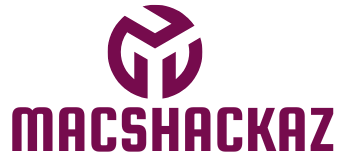In today’s fast-paced world, managing a fleet can feel like herding cats—if those cats were high-maintenance vehicles with GPS tracking and maintenance schedules. Enter fleet management apps, the superheroes of logistics that swoop in to save the day. They streamline operations, cut costs, and help fleet managers keep their sanity intact.
Table of Contents
ToggleWhat Are Fleet Management Apps?
Fleet management apps provide tools for overseeing vehicle operations within a transportation network. These applications streamline the management of vehicles, drivers, and routes, enhancing efficiency and organization.
Key Features of Fleet Management Apps
Tracking vehicle location in real-time offers transparency. Maintenance alerts help managers keep vehicles in optimal condition, minimizing downtime. Driver behavior monitoring provides insights into safety and efficiency, encouraging responsible driving habits. Route optimization enhances fuel efficiency and reduces travel time, leading to cost savings. Integration with other business systems facilitates seamless data flow and improves overall operations.
Benefits of Using Fleet Management Apps
Implementing fleet management apps boosts productivity significantly. Cost savings result from efficient route planning and reduced fuel consumption. Enhanced safety records emerge through driver monitoring and maintenance alerts. Improved customer satisfaction often follows due to timely deliveries and reliable service. Data analysis capabilities allow for better decision-making and long-term strategy development.
Popular Fleet Management Apps

Numerous fleet management apps exist to enhance operational efficiency and decision-making. This section highlights three leading options, focusing on their unique features.
App 1: Overview and Features
Fleet Complete provides comprehensive fleet tracking solutions. Users benefit from real-time GPS tracking, which allows for easy monitoring of vehicle locations. Additionally, it offers maintenance management features to schedule services and track repair histories. Driver behavior insights contribute to safer driving practices. The app also integrates seamlessly with various business systems, enhancing operational efficiency across departments.
App 2: Overview and Features
Samsara excels in providing all-in-one fleet management solutions. It includes real-time vehicle tracking and automated reports on driver performance. Users appreciate the maintenance alerts that prevent costly downtime. The app’s GPS technology enables route optimization, improving delivery times and fuel efficiency. Samsara further enhances safety with dashcam insights, ensuring better accountability and reducing accident risks.
App 3: Overview and Features
Verizon Connect offers a robust fleet management platform tailored for diverse industries. Its key features include real-time tracking and comprehensive reporting tools that simplify data analysis. Users can access driver performance metrics and implement safety measures easily. The platform also supports fuel management tools, leading to reduced fuel expenses. Integration capabilities allow for smooth collaboration with existing business applications, fostering overall productivity.
How to Choose the Right Fleet Management App
Choosing the right fleet management app involves understanding specific business requirements and evaluating key factors that influence efficiency.
Assessing Your Business Needs
Identifying unique business objectives is vital. Consider the size of your fleet and operational complexity when determining necessary features. Analysis of existing challenges helps clarify needs, such as improving route optimization or enhancing driver safety. Prioritizing functionalities, like real-time tracking and maintenance alerts, aligns the app with operational goals. Engaging stakeholders provides essential insights, ensuring selection addresses various departmental requirements. Effective assessment leads to improved decision-making and operational performance.
Key Factors to Consider
Several factors influence the selection of a fleet management app. User-friendliness plays a crucial role; employees should be able to navigate the interface with ease. Integration capabilities with current systems enhance overall functionality and reduce disruptions. Cost factors, including subscription fees and hidden charges, should align with budget constraints. Scalability is important for future growth; apps must support additional vehicles and features. Customer support is another critical aspect; responsive assistance can resolve issues quickly. Evaluating these factors supports informed decisions and maximizes operational benefits.
Best Practices for Implementing Fleet Management Apps
Implementing fleet management apps effectively requires careful planning and execution. Adopting best practices ensures smooth integration and maximizes the app’s potential.
Training Your Team
Training team members on new fleet management apps plays a critical role in successful implementation. Provide comprehensive training sessions that cover all app features. Engaging tutorials and hands-on practice enhance familiarity and confidence. Schedule regular training updates as software evolves to keep skills sharp. Encourage team members to ask questions and share feedback, creating an environment where learning thrives. Designate a few team champions who can offer assistance and support to others. Ensuring everyone is comfortable with the tool helps prevent disruptions and optimizes overall efficiency.
Monitoring Performance
Monitoring performance after app implementation is essential for ongoing success. Establish key performance indicators (KPIs) that align with business objectives to gauge app effectiveness. Collect data on metrics such as fuel consumption, maintenance schedules, and driver behavior to evaluate improvements. Conduct regular reviews to identify patterns and make informed adjustments. Leverage reports generated by the app to spot trends and areas needing attention. Assign team members to oversee performance measurement, fostering accountability for results. Reporting mechanisms streamline communication and promote proactive management in optimizing fleet operations.
Future Trends in Fleet Management Apps
Future trends in fleet management apps are shaped by continuous technological advancements and the increasing significance of data analytics. These trends promise improved efficiency and enhanced decision-making for fleet managers.
Advancements in Technology
Artificial intelligence (AI) integration will revolutionize fleet management apps, offering advanced predictive analytics. Machine learning algorithms can analyze historical data to forecast maintenance needs, reducing unexpected breakdowns. Furthermore, enhanced mobile app functionalities enable drivers to receive real-time updates on route changes. Connectivity with Internet of Things (IoT) devices facilitates streamlined communication between vehicles and fleet managers. Cloud computing provides secure storage and accessibility for vast data sets, supporting scalable solutions across different fleet sizes. Overall, these advancements will foster smoother operations and better resource allocation.
Impact of Data Analytics
Data analytics transforms how fleet managers interpret and utilize information. Real-time data processing allows for immediate insights into vehicle performance and driver behavior. Predictive analytics helps fleet managers optimize routes based on traffic patterns and environmental conditions. Additionally, analyzing fuel consumption data supports cost-saving measures by identifying inefficiencies. The ability to create detailed reports provides fleet managers with a comprehensive view of operations, improving strategic planning. Overall, data-driven decisions enhance productivity and contribute to the long-term success of fleet management systems.
Fleet management apps are transforming how organizations handle their vehicle operations. By leveraging advanced features like real-time tracking and data analytics, these tools empower fleet managers to optimize efficiency and enhance productivity. As technology continues to evolve, the integration of AI and IoT will further refine these applications, making them indispensable for modern fleet management.
Choosing the right app and implementing it effectively can lead to significant cost savings and improved safety. Organizations that embrace these innovations will not only streamline their operations but also position themselves for long-term success in an increasingly competitive landscape.




